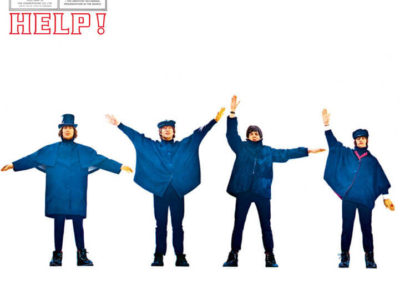Falling down and flailing in front of your entire high school assembly? Awkward. Giving your RA your mother’s number? Awkward. Asking your friend’s dad to give you a ride home when you’re 21? Definitely awkward.
Six years ago I developed a built-in creator of awkward scenarios: temporal lobe epilepsy.
Most of my personal problems come from the side effects of epilepsy medication. Like a sad version of Cinderella, one hour after taking my medication I transform from a carriage into a pumpkin with double vision that lasts for hours and renders me illiterate. And my fairy godmother never shows up to magically solve my problems or even offer a medical explanation, which just makes me grumpy. Other side effects include deep fatigue that requires 10 hours of sleep–which gets in the way of finishing Anna Karenina by the impending deadline.
Through my years at college I’ve refused to consider epilepsy a disability. I refuse even though university counseling is happy to hold low-key meetings to discuss my mental state during the supposed “best years of my life.” I know that Student Affairs has a folder with my name in case I need to pull the disability card if academic struggles become too much. I know the lovely people at the health center are available to help with the physical problems that arise from seizures and brain-related issues. I’m surrounded by people who want to help. And I have never approached them on my own.
Why? Because of pride, guilt and shame.
- Pride: I walked by those offices freshmen year as the leaves turned brown and life got harder–and I just told myself, I’m an independent young woman who don’t need no one or nobody to get where I need to go.
- Guilt: How many times have I scurried past the Health Center knowing that their unopened letters sat buried in my drawer? What if I don’t really need the help? I’m wasting these professionals’ time when there are people who need it more.
- Shame: What if people judge me? Or just judge me for sticking out in the first place.
I refuse help, yet I clearly need it. Example? One morning I had to go to the ER because I was walking into walls and didn’t know why the floor was moving. Not because I’d gotten wasted the night before, but because my newest medication had been pushed too high. Sh*t happens. What should not have happened was my explanation to the professor as to why I wasn’t there to lead my assigned class discussion: “I didn’t feel well today–could I please do my presentation the next day?” She was less than pleased and my grade reflected it.
Confession: Just because I’ve realized this pride-guilt-shame wall is keeping me from accepting support and help doesn’t mean I’ve been working on tearing it down. It feels like every time I remove a brick and let a little vulnerability slip out, a concerned eye peeks out through the hole and freaks me out enough to hide from the unwanted sympathy. I choose to feel degraded by others’ assumptions that I need what they offer. It feels too subconscious to be a choice, but it is.
I know I’m not alone in this. Tons of classmates are pushing away help: Help with being swamped with school work, emotionally strung out, dependent on someone you shouldn’t be, addicted to something you shouldn’t be, physically disabled or just too frigging lonely.
Maybe now that I’m considering it a choice, I can make a new choice. Next time. Sometime. In the future…
It’s a work in progress.



















